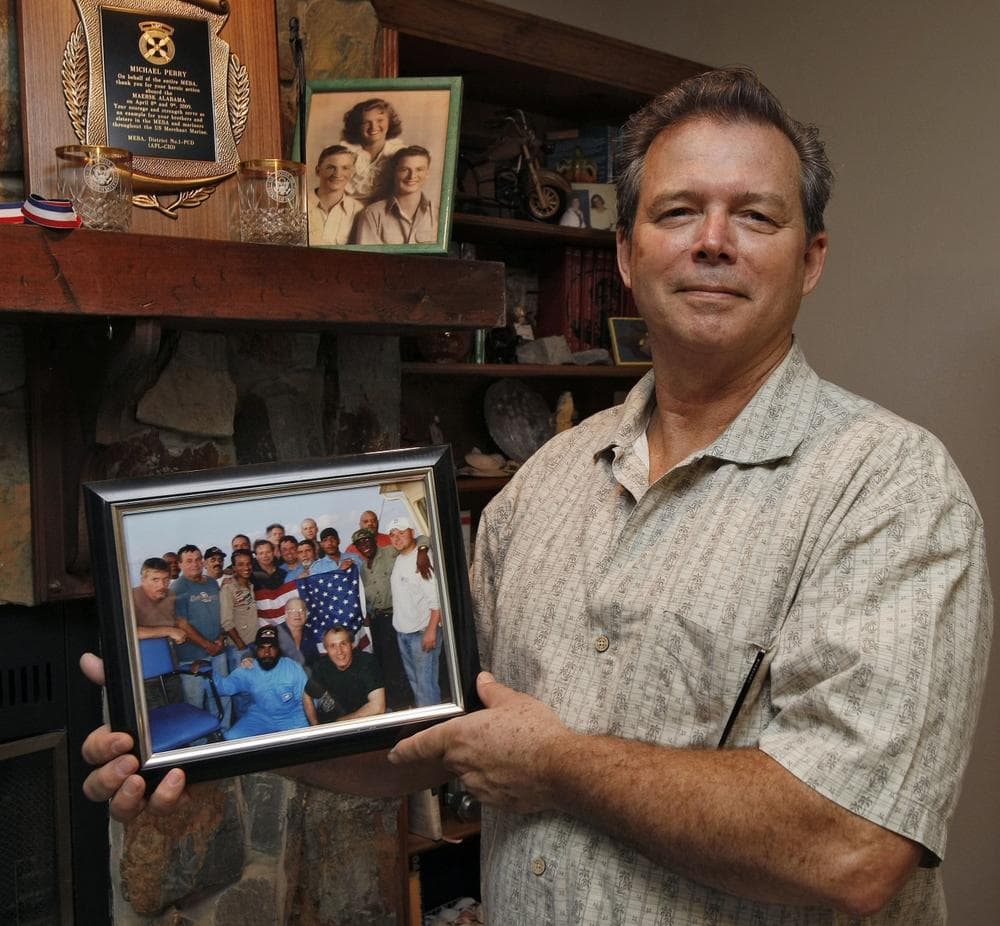Advertisement
Captain's Account Of Pirate Invasion Is Untrue, Says Crew
Resume
It's a mutiny among the crew of the Maersk Alabama.
Nearly all the crew members of the cargo ship overtaken by Somali pirates last April are speaking out against their captain and his version of the events that took place off the coast of Africa.
In a book out earlier this month, Massachusetts native Capt. Richard Phillips recounts the invasion of the ship and the five days he spent as the pirates' hostage. He says he voluntarily gave himself up to the pirates in exchange for the safety of his crew.
But 16 members of Phillips' 19-man crew say much of their captain's story is untrue. They even blame him for much of what went wrong.
Michael Perry, the ship's chief engineer at the time, told WBUR that Phillips didn't volunteer himself as a hostage to the pirates. Perry says the captain was taken against his will.
"He was the first person captured within minutes of the pirates boarding the ship," Perry said. "How could he possibly give himself up to save the crew?"
"The crew performed honorably, heroically," Perry said, "and Phillips has come home and allowed himself to be portrayed as the captain that gave himself up for the crew and then proceeded to pretty much throw us all under the bus."Perry said it was actually due to a failure on Phillips' part that the pirates were able to take more crew members. "He failed to lock his doors, and that's why the four people got captured."
At that point, Perry said, it was up to the crew to save the ship.
"We went through 33 hours of a running gun battle with Somali pirates, prevented the ship from being captured and fought to save the few crew members that had been captured," Perry said.
Perry captured a pirate, which he says Phillips tried to leverage for his own release. "That didn't entail him giving himself up for the crew, it entailed us risking our lives again to do this exchange."
Perry also said it was Phillips' negligence that got the Maersk Alabama into trouble in the first place. He alleges that Phillips failed to heed warnings of pirate attacks on their customary path and refused to reroute their ship.
"The pirates had targeted that route, messages were telling all the captains to go out 600 miles," Perry said. "Almost every officer on that ship at different times came to me and said, 'Chief, it's almost like the captain wanted this to happen.' "
Since his return to the United States, Perry says Phillips has yet to be in touch with the crew of the ship. "He has never, ever checked on his crew to thank them for what they did to save him."
It's something that Perry said is a source of continued struggle for the crew of the ship.
"The crew performed honorably, heroically," Perry said, "and Phillips has come home and allowed himself to be portrayed as the captain that gave himself up for the crew and then proceeded to pretty much throw us all under the bus."
When the crew learned that Phillips was slated to return to the ship last August, Perry said crew members came to him and asked that he push for an investigation into Phillips' conduct.
A spokesperson for the Coast Guard told WBUR that the attack had been investigated, but Perry said no member of his crew had been interviewed.
The Coast Guard said it does not plan to look further into Perry's allegations.
Calls to Phillips and Maersk for this story were not returned.
This program aired on April 27, 2010.